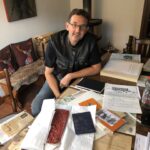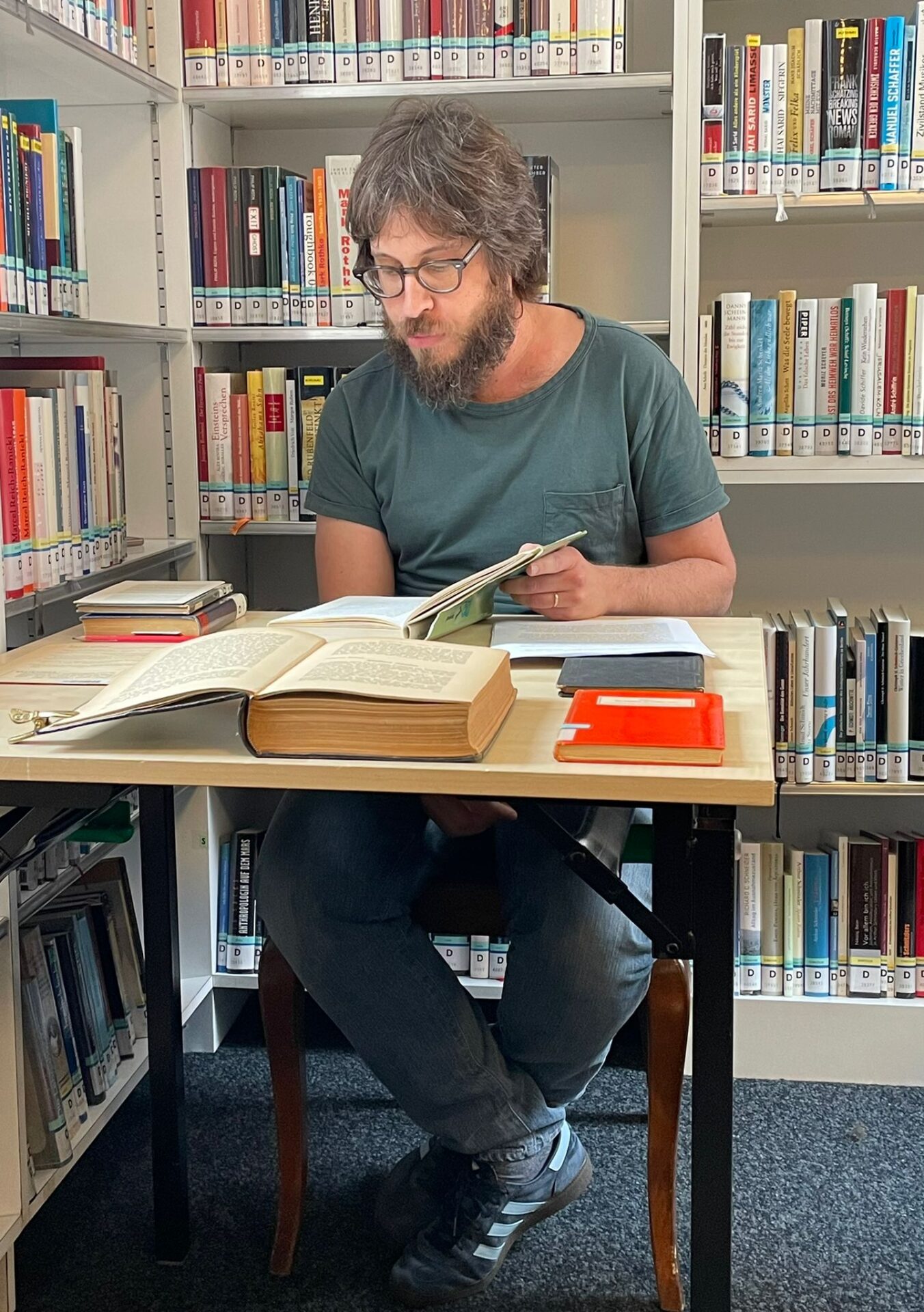«She was a pioneer of inter-religious dialog.»
Oded Fluss on
Margarete Susman
This month, Omanut and the ICZ library, two Jewish cultural institutions in Zurich, celebrated the philosopher Margarete Susman on what would be her 150th birthday. Oded Fluss, the ICZ librarian and lecturer spoke with Naomi Lubrich about the poet and scholar who influenced the German-Jewish post-war debate from Switzerland.
Naomi Lubrich: Oded, Margarete Susman was born 150 years ago. Who was she?
Oded Fluss: Margarete Susman was a poet, a philosopher, a scholar of religious studies, and a literary critic from a middle-class Jewish family in Hamburg. In 1933, she emigrated from Germany to Zurich. In Switzerland, she learned of the fate of Jews in Nazi-Germany. She also learned that her sister Paula had committed suicide in 1942 after failing to escape. She later also learned that her closest friend, the poet Gertrud Kantorowicz, had been murdered in the concentration camp Theresienstadt.
NL: Susman was not initially drawn to Jewish topics. What sparked her interest?
OF: Susman grew up in an assimilated family with little interest in Judaism. She knew and cultivated German majority-culture. Her favourite holiday was Christmas, which her family celebrated according to German custom. Surrounded by antisemitic children’s stories and songs, she was ashamed of her Jewishness. In her early twenties, after the death of her father, she first became interested in Jewish topics. One reason was her encounter with the liberal rabbi Caesar Seligmann, who gave her insight into her heritage. Seligman’s and Susman’s friendship impacted her philosophical writing and lasted her whole life. A second reason why she became interested in Judaism was the Holocaust: Immediately after the war in 1946, Susman published «Das Buch Hiob und das Schicksal des jüdischen Volkes» (The Book of Job and the Fate of the Jewish People). Despite her Jewish perspective, her writings were controversial due to their messianic and Christian underlying ideas.
NL: As a woman, was Susman ahead of her time?
OF: As a woman, she moved in circles that were otherwise reserved for men. For instance, she was one of the few women included in the so-called George-circle, led by and named after the poet Stefan George. She was the only woman whose works were published in the anthology «Vom Judentum» (On Judaism, published in 1913 by the Bar Kochba Association of Jewish Pupils in Prague), which also included contributions by Martin Buber, Gustav Landauer, Jakob Wasserman and Karl Wolfskehl. With the exception of Fega Frisch, who wrote a short afterword to one of her translations, Susman was the only female author to be published in the Schocken Library, arguably the most important Jewish book series of the 20th century.
NL: How did Susman experience Zurich as her new home?
OF: Susman moved to Zürich in 1933 at the age of 61, when she was already a respected intellectual. Like all Jews during the war, she feared the surveillance of the Swiss immigration police and was restricted in her activities. Nevertheless, she liked Switzerland. As a child, she had spent many years in Zurich and called Switzerland her «second home». Her title for a chapter on Switzerland was «Emigration to the Homeland». She also liked Swiss German. For her and other Jews, German was fraught. She experienced Swiss German as a compromise, avoiding the sound of German yet still enabling her to communicate in her mother tongue. She wrote her most important works in Switzerland.
NL: What was Susman’s position in the German-Jewish post-war debate?
OF: Margarete Susman never gave up on German culture, even when her country turned against her. And she never turned her back on non-Jews. She repeatedly offered herself as a bridge builder between cultures and religions: She was a supporter of inter-religious dialog long before it became mainstream, and she advocated the protection of all people, regardless of their origins. Most of all, however, it is her writing about Job as the ultimate, universal embodiment of human suffering which will inform the memory of Susman’s writing.
NL: Oded, thank you for your perspective on this remarkable woman.
verfasst am 03.11.2022

Sascha Schönhaus about his father Cioma Schönhaus



